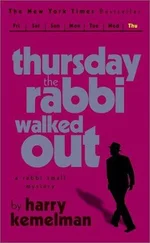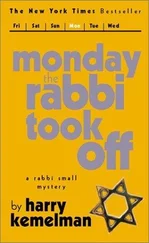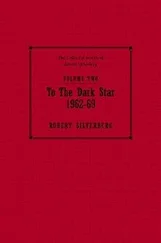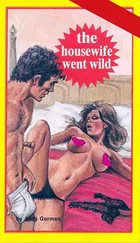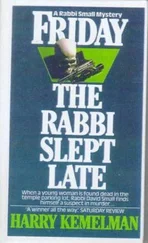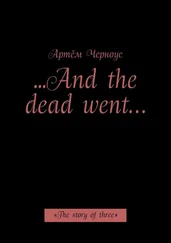“I suspected it might be something like that.”
“I guess from your point of view it was a pretty terrible thing for him to do.”
The rabbi thought for a moment. “No, I don’t think it was terrible. In a way I’m rather pleased.”
“Pleased that he ran out on your Yom Kippur service to consummate a business deal?”
“No-pleased that he was ashamed of it.”
Sunday morning, the Schwarz forces were standing around unhappily in the corridor just outside the Board meeting room.
“Do you think the rabbi will show up today?” asked Marvin Brown.
“I doubt it,” said the president. “Stands to reason as an expectant father he’ll be at the hospital.”
Herman Fine came up and joined them. “I understand the rebbitzin went to the hospital yesterday. Maybe we should hold off on the rabbi’s letter of resignation at least for today. I know I for one would feel funny-”
“Are you kidding?” demanded Schwarz. “The resignation is definitely out. I guess you didn’t hear what I just told the boys. I ran into Ben Goralsky after the minyan this morning, and for about twenty minutes all he could talk about was how wonderful ‘the little rabbi’-that’s what he called him-how wonderful he was. You’d think the rabbi saved his life.”
“Maybe he did,” said Marvin Brown. “You hear about how if a man is innocent he won’t be convicted, but every now and then some guy will confess to a crime some other guy has done twenty years in prison for.” He ran his hand under his collar. “Don’t think I wasn’t plenty worried about the same thing. Besides, even if he got off, how about his old man? A thing like that could kill him.”
“All right, the resignation is out,” said Fine. “And it’s okay by me. So what do we do now? I say we ought to go the whole way and do it up handsome. Mort should read the letter, explain it was due to a misunderstanding, and call for a vote from the Board refusing to accept it.”
“Like hell.”
“What d’you mean, Mort?”
“I mean I’m certainly glad Ben Goralsky got off, and I’m willing to give the rabbi some credit. Still it’s one thing to forget about the resignation, because then we could kiss the Goralskys goodby. But I’m damned if I go begging to the rabbi. There’d be no living with him after that. If we ever disagreed on anything again-Watch it, here come Wasserman and Becker.”
“Good morning, gentlemen, I got good news. I just called the hospital and they told me the rebbitzin had a boy.”
“Hey, that’s all right.”
“That is good news.”
“How’s the rebbitzin feeling?”
They all gathered around, asking questions.
“Look, fellows,” said Schwarz, “are we going to stand out here and schmoos all day? Let’s get the meeting started.”
“Yeah, let’s go.”
“What do you plan to do about the rabbi’s letter?” asked Wasserman as they moved toward the door.
Schwarz looked at him in surprise. The group halted to listen.
“What letter, Jacob? What letter are you talking about?”
The men looked at each other and some smiled.
But Becker’s face got red. “What are you trying to pull, Mort? You know damn well what letter Jake is talking about. You planning some-”
Wasserman put a restraining hand on his friend’s arm. “Becker, Becker, if Mort doesn’t know about the letter, that means he never received it.”
“Why, was it something important?” asked Schwarz.
Wasserman shrugged his shoulders. “I guess not. Probably something routine-just routine.”
The missus home yet?” asked Lanigan.
“Tomorrow,” said the rabbi happily. “I take them home tomorrow.”
“I was hoping I’d have a chance to see the boy.”
“He looks like a little old man, so wrinkled.”
“They all do for a few days. Then they begin to round out and get fat.”
“I suppose so. The doctor said it was a fine healthy child, but you couldn’t tell by looking at him. He looked like a plucked chicken.”
“They’re just like puppies. They’ve got to grow into their skins.”
“Well, you’ve made me feel better already,” said the rabbi. “Say, why don’t you and Gladys drop around tomorrow? You’ll be able to see him then.”
“Oh, we intend to. But I was passing and thought I’d be able to sneak a preview. I’ve just come from the D.A.’s office. He made a deal with Sykes’s lawyer for second-degree murder.”
“Second-degree? But that’s unpremeditated-”
“I know, I know. But the D.A. still thought it best.”
“But you had a confession.”
“We had a confession but not for premeditated murder. When he confronted Sykes, we carefully refrained from mentioning the wiped fingerprint. We told him we knew he was without his car over the weekend; we told him what we’d uncovered about the work in his department at the lab. And I guess we sort of hinted Hirsh’s death was probably accidental, and that if he cooperated fully with us it would go a lot easier for him.”
He reddened and looked away from the rabbi’s direct glance. “It’s common procedure. It’s done by lawyers regularly right in the courtroom. If you can trap your man into admitting his guilt-what’s wrong with it? It wasn’t as though he was innocent.”
“I’m not quarreling with you.”
“Well, he admitted that he’d come across Hirsh as you suggested and drove him home. Also that Hirsh passed out within minutes after they’d started. He claimed he tried to wake him up when they got to Hirsh’s house, but he couldn’t budge him. So he decided to leave him there to sleep it off. Only after he’d got home did it occur to him that perhaps he’d forgotten to turn off the motor. By then he was afraid to walk back and see.”
“And what about the way he used Hirsh to cover up his own mistakes?”
“He admitted that. As a matter of fact, he gave us a complete picture of what happened at the lab. I guess he was smart enough to realize that we’d find it out eventually, and it would look better for him if he were completely candid with us. It’s only a fool who tries to cover up and then finds he has to keep retreating as we learn more and more. It appears that the original brainstorm was Hirsh’s. He issued the preliminary report in both their names, but then Sykes assigned Hirsh to other work and carried this on by himself. He claims he wasn’t trying to steal the credit; that Hirsh just was not as enthusiastic about his own idea as he was. But he discussed it with Hirsh off and on, and sometimes had Hirsh check his figures.
“Then Hirsh discovered an error. Sykes told him not to say anything yet, with an idea that he’d admit it gradually in a series of progress reports. One would say that unexpected difficulties had cropped up. Then he’d issue another to the effect that a great deal more work and time were needed. And finally, he’d put one out that would make it clear it was a dud. I guess Hirsh might have gone along, except that his name was on the first report and that the research was being done for Goraltronics.”
“Hm-that’s interesting. Is that your idea, or did Sykes say Hirsh was concerned about Goraltronics?”
“No, I got that from Sykes. Evidently, Hirsh felt some sort of obligation to Goralsky for having got him the job. He even hinted that if Sykes didn’t tell the truth he was going to speak to Goralsky himself. Maybe he was just bluffing, but Sykes didn’t know. Goralsky had got him the job, so naturally he had every reason for taking the hint seriously. So late Friday afternoon he went to Quint and told him the truth. He claims he was going to admit he was to blame, but Quint was so upset that he lost his nerve. When Quint assumed it was Hirsh’s fault, he did not correct him. You can understand how Quint felt because he knew about the merger and the stock going up and all that. He wanted to call Hirsh in and fire him right then and there, but Sykes lied and said Hirsh had gone home early because of the holiday. That’s kind of ironic, isn’t it?”
Читать дальше

